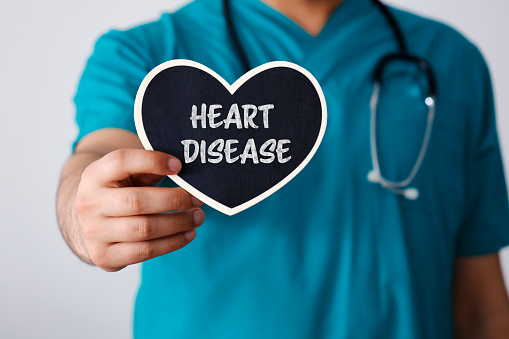Heart disease is a term that applies to a large number of medical conditions relating to the heart. These medical conditions relate to the abnormal health conditions that directly affect the heart and all its components. Heart disease is a major health problem within some cultures.
One theory for heart disease is the radical changes within our lifestyles. People are often less active and eat diets high in fats. Takeaway food is abundant today and often people will eat it due to the increased availability. Some takeaway outlets are now helping cater to a healthier lifestyle by offering a variety of healthy dishes such as salads. People are becoming more aware of the risk of heart disease and choosing to change their diets.
Exercise is extremely important in order to avoid heart disease. Exercise helps to keep the heart in peak performance. By using a combination of exercise and a balanced diet, the risk of heart disease is greatly decreased.
Some people who have abnormal heartbeats may not even be aware of them. Awareness of heartbeats (called palpitations) varies widely among people. Some people can feel normal heartbeats, and most people can feel heartbeats when they lie on their left side.
Arrhythmias have consequences that range from harmless to life threatening. The seriousness of an arrhythmia may not be closely linked with the severity of the symptoms it causes. Often, the nature and severity of the underlying heart disease are more important than the arrhythmia itself. Some life-threatening arrhythmias cause no symptoms. Otherwise inconsequential arrhythmias can cause severe symptoms.
When arrhythmias impair the person's heart's ability to pump blood, they can produce weakness, a reduced capacity for exercise, light-headedness, dizziness, and fainting. Fainting occurs when the heart is pumping so inefficiently, it can no longer maintain enough blood pressure. If such an arrhythmia persists, death may be a direct result.
Arrhythmias may also aggravate the symptoms of underlying heart disease, including chest pain and shortness of breath. Arrhythmias that produce symptoms require prompt attention.
When arrhythmias impair the person's heart's ability to pump blood, they can produce weakness, a reduced capacity for exercise, light-headedness, dizziness, and fainting. Fainting occurs when the heart is pumping so inefficiently, it can no longer maintain enough blood pressure. If such an arrhythmia persists, death may be a direct result.
Arrhythmias may also aggravate the symptoms of underlying heart disease, including chest pain and shortness of breath. Arrhythmias that produce symptoms require prompt attention.





.jpg)



Comments
Post a Comment